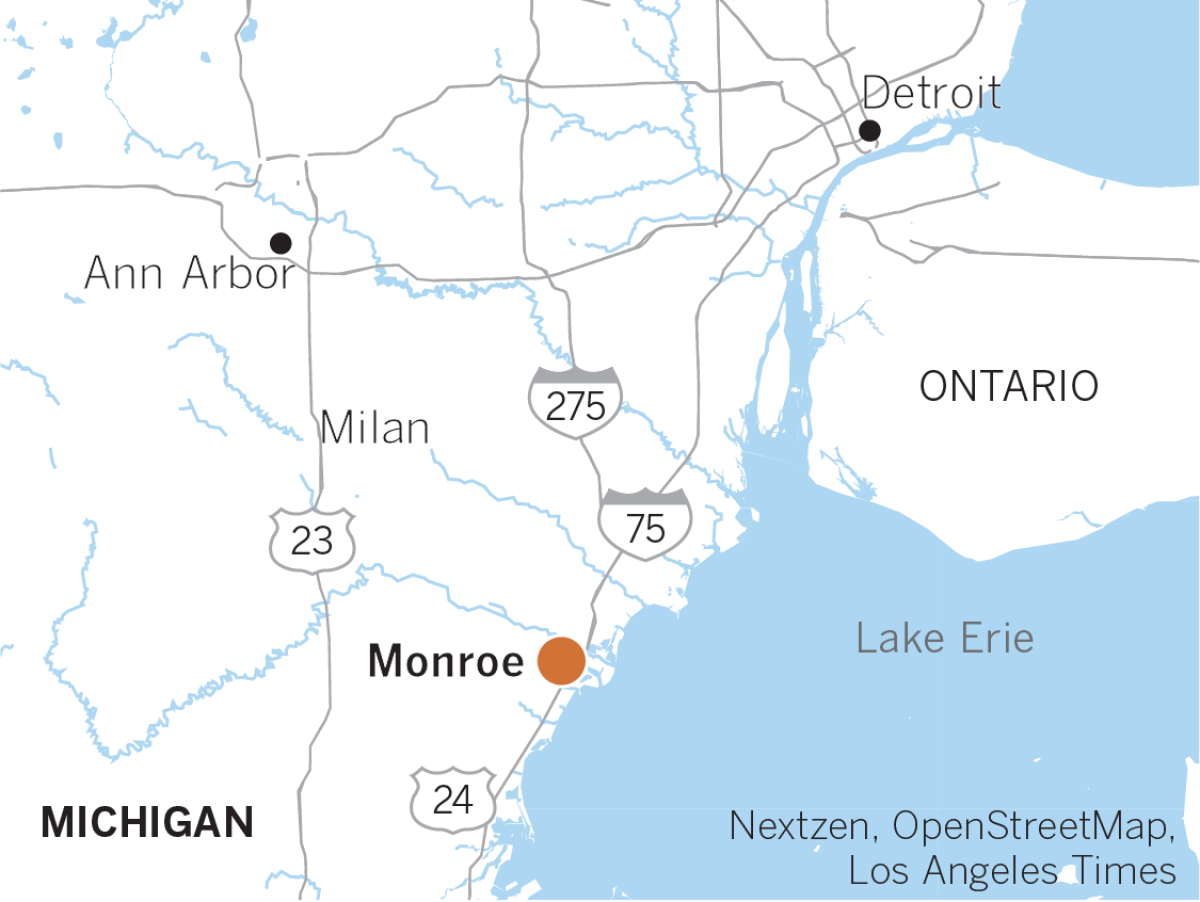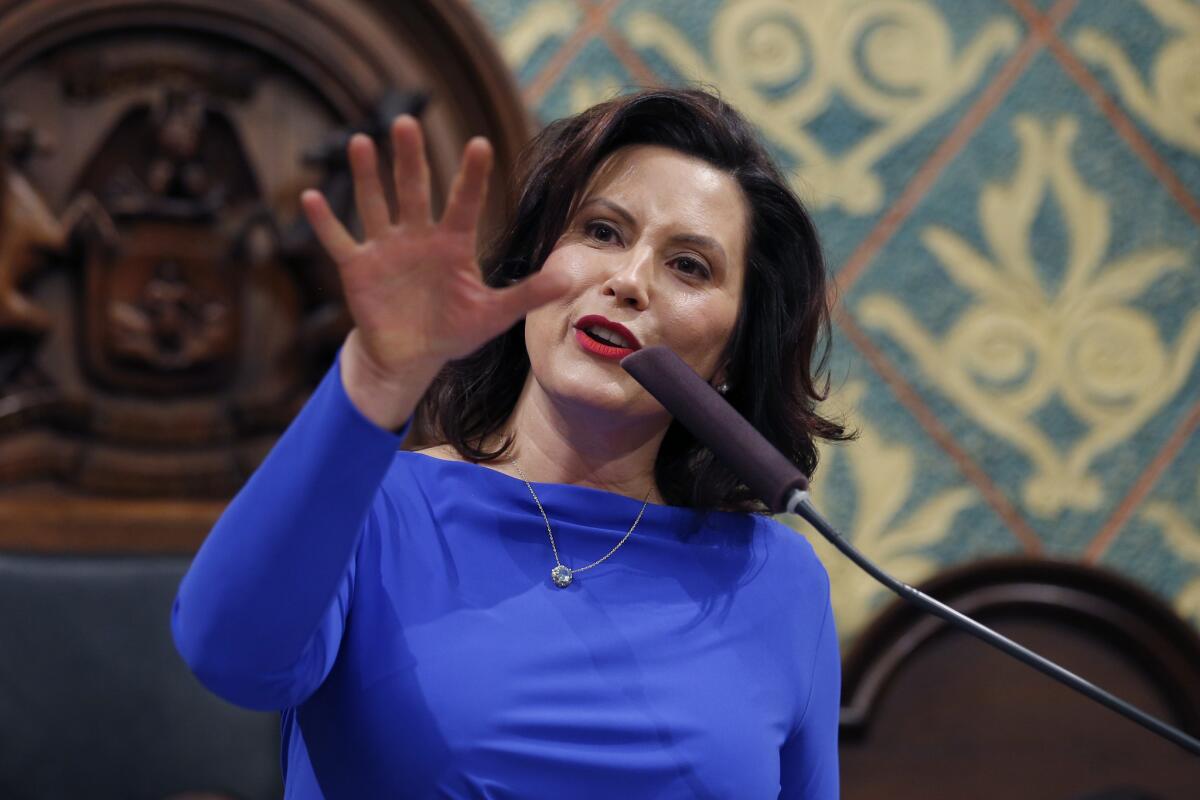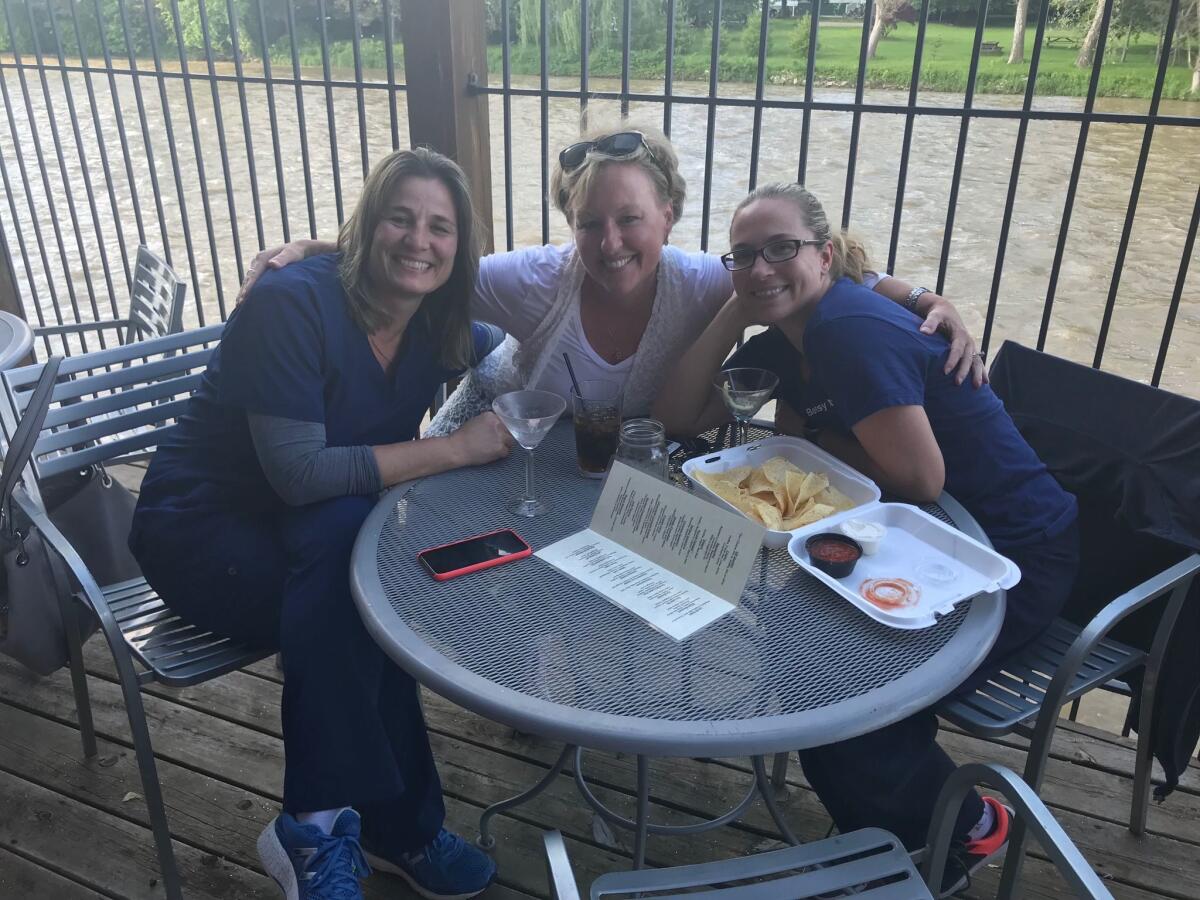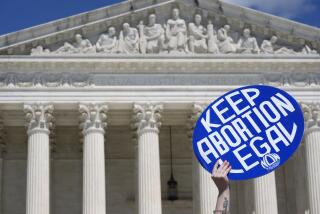Abortion politics in Michigan could tilt the state’s coveted voters in 2020

Reporting from Monroe, Mich. — Abortion policy wars are largely being waged in brick-red states, with the support of elected officials and conservative activists. But a new front is opening in deeply purple Michigan — and it could impact the 2020 election.
A majority of voters here support abortion rights, but a quirk in state law could allow the GOP-led Legislature to adopt two major abortion restrictions next year — and the Democratic governor would be blocked from vetoing them.
Suburban women in places like Monroe, a picturesque town on the west bank of Lake Erie, are deeply concerned about these efforts. And because of the state’s importance to President Trump’s reelection strategy, they will be some of the most coveted voters in next year’s presidential campaign.

Hairstylist Jes Ryske, who had her first child 13 months ago, is wrestling with the issue. She recalled learning about abortion as a child, when her mother volunteered at a local Christian baby goods pantry for struggling pregnant women. The antiabortion nonprofit pregnancy center was founded two months after the Supreme Court legalized the procedure in 1973.
“I do believe a life is a life, but it’s hard for me. I don’t think anyone should have the right to tell you what to do with your body,” said Ryske, 33.
“And then there’s the issue of you’re controlling what a woman can do, but not controlling what a man can do. The men are never part of the equation,” she said. “They make pregnancies; I can’t do it by myself.”
In recent weeks, Michigan lawmakers passed a bill to ban an abortion procedure commonly performed in the second trimester of pregnancy and to imprison doctors who perform it. A state senator introduced legislation that would forbid doctors from performing an abortion after a fetal heartbeat is detected, roughly six to eight weeks after conception, before many women know they are pregnant.

Recently, Gov. Gretchen Whitmer has vowed to veto the bills. However, because of the peculiarity in Michigan’s ballot initiative process, they may still become law.
Antiabortion groups plan to put both proposals in play by gathering the roughly 340,000 signatures required to qualify for the November 2020 ballot. The Legislature can then place the proposals before voters, or it can skip that step and make them law for the state’s nearly 10 million residents — a move that takes away the governor’s ability to veto.
It’s a strategy antiabortion activists in Michigan have used before — to ban public funds from being used to pay for abortions for welfare recipients, to require parental consent for minors, to define a legal birth and to require women to purchase an insurance rider if they want abortion coverage.
“We have the support of both chambers — and one governor standing in the way,” said Genevieve Marnon, legislative director of Right to Life Michigan, which plans to start gathering signatures for the procedure ban on Wednesday. “We always give the governor the opportunity to sign the law. If he or she vetoes the law, we gather signatures and put it back to the state Legislature with the anticipation they will pass it again.
“That’s always been our playbook.”
Planned Parenthood has pledged to fight the laws in court if they are enacted. Conservative politicians have acknowledged that so-called heartbeat bans and similar laws being enacted across the nation are designed to provoke legal challenges that would reach the now conservative-leaning Supreme Court, with the aim of overturning the landmark Roe vs. Wade decision.
Liberal activists and politicians have seized upon these efforts to galvanize women nationwide. But some Democrats argue that the moves in Michigan are particularly notable because of the state’s moderation and its crucial role in next year’s presidential election.
Trump beat Hillary Clinton here by 10,704 votes, the first time a Republican presidential candidate won the state since 1988. His win was part of breaking the blue wall in three states in the Rust Belt — Pennsylvania, Wisconsin, Michigan — that Democrats had counted on. All three are vital to Trump’s reelection strategy, unless he expands support elsewhere.
Democrats say the abortion efforts will motivate the moderate suburban women and young and minority voters who failed to turn out for Clinton in sufficient numbers.
“Losing the freedom to make one’s own healthcare decisions is no longer a potential threat but actually a reality for voters. It’s not going to be a wake-up call anymore. It’s a five-alarm fire,” said veteran Democratic strategist Jill Alper, a Grosse Pointe, Mich., resident who advised and raised money for Clinton in 2016. “It’s a persuasion issue and a turnout issue.”
Interviews with nearly two dozen women in Monroe County, a bucolic region halfway between Detroit and Toledo, Ohio, that voted for President Obama in 2012 and Trump in 2016, show the issue could factor into which way the county leans next year.

Miranda Benardo, a community college student scooping ice cream at Cravings on a muggy weekday, said she had heard of the abortion restrictions being proposed in other parts of the country. But she was shocked they were being proposed in her home state.
“As a woman, I feel like … our bodies are a topic of conversation among the people trying to push these laws who haven’t experienced some of the things we go through as young women,” the 20-year-old said. “This would definitely impact how I vote.”
Dana Dietrich, a case manager at Catholic Charities of Southeast Michigan, works with women suffering from substance abuse and wonders what would happen to them if abortion were severely restricted.
“I was born and raised Catholic. So you want to protect human life,” the 28-year-old said. “But I also understand the history and what happened when abortion was outlawed and a lot of women were getting injured.”
Dietrich, who is not registered with a political party, voted for Obama in 2012 and did not vote in 2016 because she did not like the candidates. But she said the abortion moves could prompt her off the sidelines in 2020.
“I definitely think the government is starting to intervene too much into people’s lives,” she said.
But some Republicans say the issue could motivate socially conservative voters to be active in the 2020 campaign, following the party’s loss in every statewide contest last year.
“It could mobilize them on both sides. Certainly the right-to-lifers have strong feelings too,” said Ron Weiser, chairman of the University of Michigan’s Board of Regents, who was formerly the head of the state GOP and served as an ambassador to Slovakia under President George W. Bush.

Tina Kirby, who would welcome new abortion restrictions, is a case in point.
“I just don’t believe in abortion. I mean if you were raped, that’s one thing. If the mother’s life is at risk, that’s one thing,” said the 52-year-old hotel clerk. “But there are so many people out there who want to adopt children. Allow someone to adopt it, give that child life.”
Kirby, taking a break from walking her two Alaskan malamutes, usually doesn’t cast a ballot. But if the abortion proposals were on the ballot, she said, she would be sure to vote.
“If I think I can change it and I think I can make a difference, I will,” she said.
But other Republicans, such as political operative Sharon Lollio, who runs monthly conservative discussion groups, do not plan to focus on the issue. Lollio says she fears driving away libertarians and socially moderate Republicans.

“I’m only going to concentrate on the things I feel like I can message properly,” Lollio said. “On the heartbeat bill, I am pro-life,” she said, but plans to focus discussions on the economy and fears of creeping socialism.
She may have voters like Christy Paternoster in mind. The ICU nurse and registered Republican held her nose and voted for Trump because she disliked Clinton, and she approves of his actions on the economy, trade and healthcare, she said.
But GOP-led efforts to restrict access to abortion could make her reconsider voting for him again, the 52-year-old grandmother said during happy hour with colleagues at a martini bar overlooking the River Raisin.
“I would never have an abortion. But I think there are circumstances like rape and things like that,” she said. “And I also think that it should be OK if you know that you’re not going to be able to provide a safe environment. We have enough children in the system already.
“It could sway how I vote, because I don’t think that rights should be taken away from a woman,” Paternoster said. “It’s your body; it’s your decision.”
More to Read
Get the L.A. Times Politics newsletter
Deeply reported insights into legislation, politics and policy from Sacramento, Washington and beyond. In your inbox three times per week.
You may occasionally receive promotional content from the Los Angeles Times.











